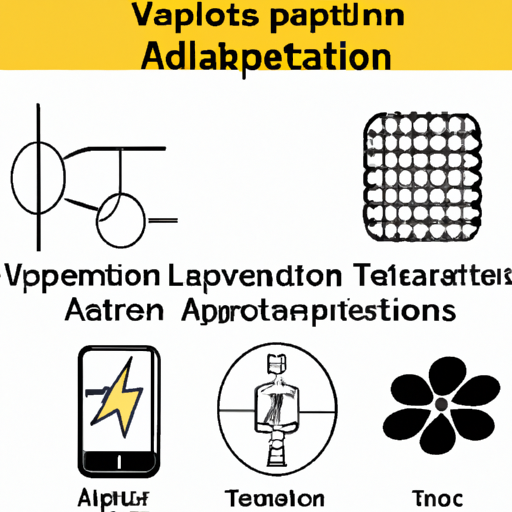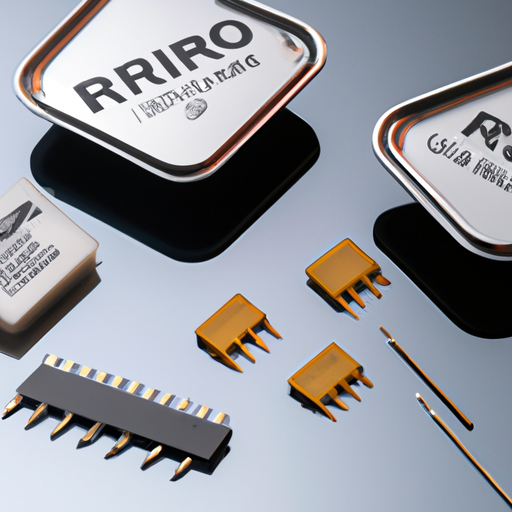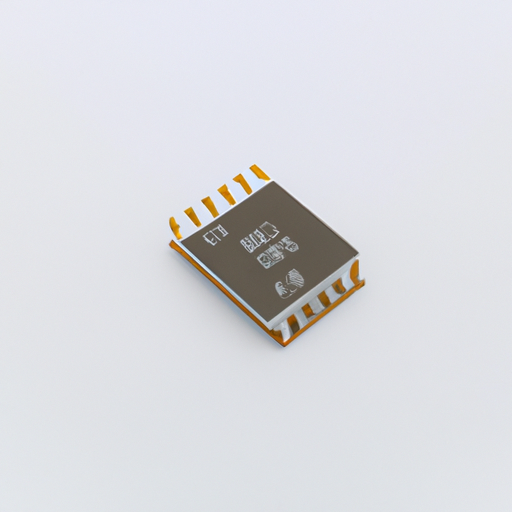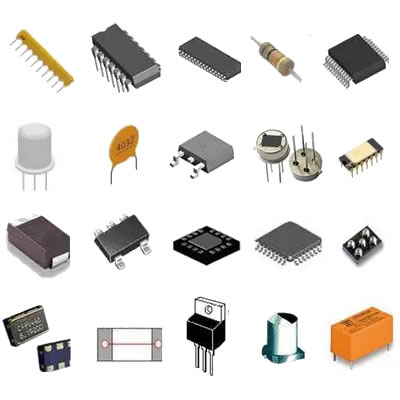What are the application scenarios of capacitors and what industries include them?
What are the Application Scenarios of Capacitors and What Industries Include Them?
I. Introduction
Capacitors are fundamental components in modern electronic circuits, playing a crucial role in a wide array of applications. Defined as passive electrical devices that store energy in an electric field, capacitors are essential for managing electrical energy in various forms. Their ability to store and release energy makes them indispensable in numerous technologies, from consumer electronics to industrial machinery. This blog post will explore the diverse application scenarios of capacitors and the industries that rely on them, highlighting their significance in contemporary technology.
II. Basic Principles of Capacitors
A. How Capacitors Work
Capacitors consist of two conductive plates separated by an insulating material known as a dielectric. When a voltage is applied across the plates, an electric field is created, allowing the capacitor to store electrical energy. The amount of energy a capacitor can store is determined by its capacitance, which is measured in farads (F).
1. Components of a Capacitor
The primary components of a capacitor include:
Plates: Conductive materials (often aluminum or tantalum) that store charge.
Dielectric: An insulating material (such as ceramic, plastic, or electrolytic) that separates the plates and affects the capacitor's performance.
2. Types of Capacitors
There are several types of capacitors, each suited for specific applications:
Ceramic Capacitors: Commonly used in high-frequency applications due to their stability and low cost.
Electrolytic Capacitors: Known for their high capacitance values, often used in power supply circuits.
Tantalum Capacitors: Offer high capacitance in a small size, ideal for compact electronic devices.
Film Capacitors: Used in applications requiring high reliability and stability.
B. Key Electrical Properties
Understanding the key electrical properties of capacitors is essential for their application:
Capacitance: The ability of a capacitor to store charge, directly proportional to the surface area of the plates and the dielectric constant.
Voltage Rating: The maximum voltage a capacitor can handle before breakdown occurs.
Equivalent Series Resistance (ESR): A measure of the resistance encountered by the current flowing through the capacitor, affecting its efficiency.
III. Application Scenarios of Capacitors
Capacitors find applications across various scenarios, each leveraging their unique properties.
A. Power Supply and Energy Storage
1. Smoothing and Filtering in Power Supplies
In power supply circuits, capacitors are used to smooth out voltage fluctuations. They act as filters, reducing ripple voltage and providing a stable output. This is particularly important in devices that require a consistent power supply, such as computers and audio equipment.
2. Energy Storage in Renewable Energy Systems
Capacitors play a vital role in renewable energy systems, such as solar and wind power. They store excess energy generated during peak production times and release it when demand is high, helping to stabilize the energy supply.
B. Signal Processing
1. Coupling and Decoupling in Audio Equipment
In audio applications, capacitors are used for coupling and decoupling signals. They allow AC signals to pass while blocking DC components, ensuring that audio signals remain clear and undistorted.
2. Frequency Selection in Radio Frequency Applications
Capacitors are essential in tuning circuits for radio frequency applications. They help select specific frequencies, enabling clear signal transmission and reception.
C. Timing and Oscillation
1. Timing Circuits in Clocks and Watches
Capacitors are integral to timing circuits, where they work with resistors to create time delays. This is crucial in clocks and watches, ensuring accurate timekeeping.
2. Oscillators in Communication Devices
In communication devices, capacitors are used in oscillators to generate specific frequencies. This is vital for transmitting and receiving signals in various communication technologies.
D. Motor Start and Run Capacitors
1. Induction Motors in Household Appliances
Capacitors are commonly used in induction motors found in household appliances like refrigerators and air conditioners. Start capacitors provide the necessary torque to start the motor, while run capacitors improve efficiency during operation.
2. Industrial Motor Applications
In industrial settings, capacitors are used in larger motors to enhance performance and efficiency, ensuring reliable operation in demanding environments.
E. Power Factor Correction
1. Improving Efficiency in Electrical Systems
Capacitors are employed in power factor correction to improve the efficiency of electrical systems. By reducing reactive power, they help optimize energy consumption, leading to lower electricity costs.
2. Applications in Industrial Settings
In industrial applications, power factor correction capacitors are used to enhance the performance of large machinery and reduce energy losses, contributing to overall operational efficiency.
IV. Industries Utilizing Capacitors
Capacitors are ubiquitous across various industries, each leveraging their unique properties for specific applications.
A. Consumer Electronics
1. Smartphones and Tablets
In consumer electronics, capacitors are essential for power management, signal processing, and audio applications. They help ensure that devices like smartphones and tablets operate efficiently and reliably.
2. Home Appliances
Capacitors are used in various home appliances, from washing machines to microwaves, enhancing performance and energy efficiency.
B. Automotive Industry
1. Electric Vehicles (EVs)
In the automotive sector, capacitors are crucial for electric vehicles, where they are used in energy storage systems and power management circuits, contributing to the overall efficiency of the vehicle.
2. Advanced Driver Assistance Systems (ADAS)
Capacitors are also integral to advanced driver assistance systems, where they help process signals from sensors and cameras, enhancing vehicle safety and performance.
C. Renewable Energy
1. Solar Power Systems
In solar power systems, capacitors are used for energy storage and smoothing out voltage fluctuations, ensuring a stable energy supply.
2. Wind Energy Applications
Capacitors play a role in wind energy applications, helping to manage energy flow and improve system efficiency.
D. Telecommunications
1. Base Stations and Network Equipment
In telecommunications, capacitors are used in base stations and network equipment to manage power supply and signal processing, ensuring reliable communication.
2. Signal Processing in Communication Devices
Capacitors are essential in various communication devices, where they help filter and process signals for clear transmission and reception.
E. Industrial Automation
1. Robotics and Control Systems
In industrial automation, capacitors are used in robotics and control systems, enhancing performance and reliability in manufacturing processes.
2. Manufacturing Equipment
Capacitors are integral to various manufacturing equipment, helping to manage power supply and improve operational efficiency.
V. Emerging Trends and Future Applications
A. Advancements in Capacitor Technology
1. Supercapacitors and Their Applications
Supercapacitors, known for their high energy density and rapid charge/discharge capabilities, are emerging as a significant technology. They are being used in applications ranging from electric vehicles to renewable energy systems, offering new possibilities for energy storage.
2. Nanotechnology in Capacitor Design
Advancements in nanotechnology are leading to the development of smaller, more efficient capacitors. These innovations are expected to enhance performance in various applications, from consumer electronics to industrial machinery.
B. Role of Capacitors in Sustainable Technologies
1. Energy Efficiency Improvements
Capacitors are playing a crucial role in improving energy efficiency across various sectors. Their ability to manage power supply and reduce energy losses is vital for sustainable technology development.
2. Integration with Smart Grids
As smart grids become more prevalent, capacitors will be essential for managing energy flow and ensuring efficient operation, contributing to a more sustainable energy future.
VI. Conclusion
In summary, capacitors are integral components in a wide range of applications across various industries. From power supply and energy storage to signal processing and motor applications, their versatility and efficiency make them indispensable in modern technology. As advancements in capacitor technology continue to emerge, their role in sustainable practices and innovative applications will only grow. Understanding the importance of capacitors is essential for appreciating their impact on the future of technology and industry.
VII. References
- Academic Journals on Capacitor Technology
- Industry Reports on Electronics and Energy Storage
- Books and Articles on Electrical Engineering and Capacitor Applications
This blog post provides a comprehensive overview of the application scenarios of capacitors and the industries that utilize them, emphasizing their significance in contemporary technology.







